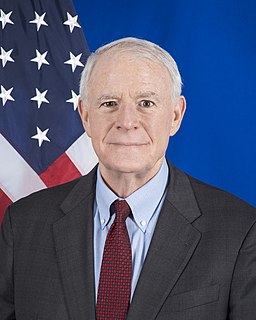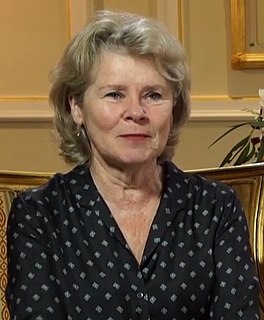A Quote by J. C. Ryle
By affliction He teaches us many precious lessons, which without it we should never learn. By affliction He shows us our emptiness and weakness, draws us to the throne of grace, purifies our affections, weans us from the world, makes us long for heaven.
Related Quotes
There are two gods. The god our teachers teach us about, and the God who teaches us. The god about whom people usually talk, and the God who talks to us. The god we learn to fear, and the God who speaks to us of mercy. The god who is somewhere up on high, and the God who is here in our daily lives. The god who demands punishment, and the God who forgives us our trespasses. The god who threatens us with the torments of Hell, and the God who shows us the true path.
There are two gods. A god who casts us off because of our sins, and a God who calls to us with His love.
This is the amazing story of God’s grace. God saves us by His grace and transforms us more and more into the likeness of His Son by His grace. In all our trials and afflictions, He sustains and strengthens us by His grace. He calls us by grace to perform our own unique function within the Body of Christ. Then, again by grace, He gives to each of us the spiritual gifts necessary to fulfill our calling. As we serve Him, He makes that service acceptable to Himself by grace, and then rewards us a hundredfold by grace.
Christians ought to suspect that affliction is the very essence of creation. To be a created thing is not necessarily to be afflicted, but it is necessarily to be exposed to affliction. ... Affliction is the surest sign that God wishes to be loved by us; it is the most precious evidence of His tenderness.
As we live our human lives, let us be like the water. Let us be conscious of the flow. Let us not forget the great ground of being that draws us on through life. Let us live in a knowing hope, aware that all being is in transition, that all movement is back to the source. Let us treat those around us as reminders of our illusionary individuality. We know that they are us and we are them connected in ways we cannot fathom. Let us grow in compassion for all beings, for they share our journey.
God washes the eyes by tears until they can behold the invisible land where tears shall come no more. O love! O affliction! ye are the guides that show us the way through the great airy space where our loved ones walked; and, as hounds easily follow the scent before the dew be risen, so God teaches us, while yet our sorrow is wet, to follow on and find our dear ones in heaven.
Adversity is a severe instructor, set over us by one who knows us better than we do ourselves, as he loves us better too. He that wrestles with us strengthens our nerves and sharpens our skill. Our antagonist is our helper. This conflict with difficulty makes us acquainted with our object, and compels us to consider it in all its relations. It will not suffer us to be superficial.
The storyteller is deep inside everyone of us. The story-maker is always with us. Let us suppose our world is attacked by war, by the horrors that we all of us easily imagine. Let us suppose floods wash through our cities, the seas rise . . . but the storyteller will be there, for it is our imaginations which shape us, keep us, create us - for good and for ill. It is our stories that will recreate us, when we are torn, hurt, even destroyed. It is the storyteller, the dream-maker, the myth-maker, that is our phoenix, that represents us at our best, and at our most creative.
The very shape of our dreams defines us. We learn about the world and try out our thoughts and visions in them. Our dreams goad us and drive us and summon and sustain us and when we are old they comfort us. Magic is a kind of dream, and love is a dream, and hope is a dream. Without our dreams, there is no sweetness, no purpose to life.
Divine love makes us true to ourselves and to others...
Divine love is the solution to our difficulties and problems.
It frees us from every kind of binding.
It makes us speak truly, think truly, and act truly.
It makes us feel one with the whole universe.
Divine love purifies our hearts and glorifies our being.



































